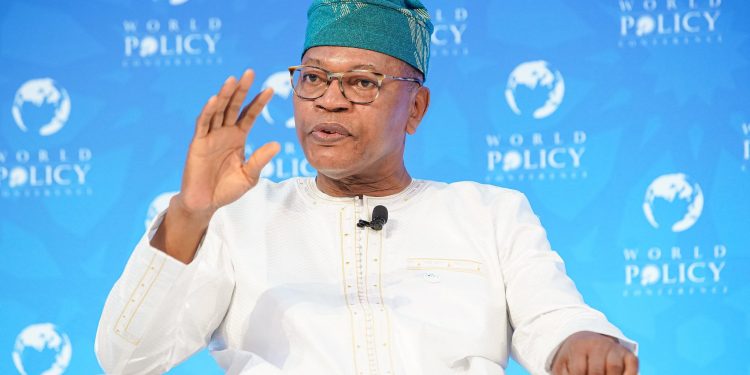The AU High Representative of Silencing the Gun, Dr. Mohamed Ibn Chambas, has emphasized the need for a more robust approach to effectively address violent extremism and terrorism in West Africa and the Sahel regions. Dr. Chambas highlighted that the traditional model of peacekeeping is no longer adequate in dealing with the contemporary nature of threats in these sub-regions.
Speaking at a two-day peacebuilding regional conference organized by the West Africa Network for Peacebuilding (WANEP) under the Research and Action For Peace (REcAP) Network project in Accra, Dr. Chambas called for a review of existing protocols and mechanisms for peace, security, democracy, and governance. He noted that despite 20 years of adopting African continental and sub-regional mechanisms, terrorists have become more resilient than expected, necessitating the development of effective instruments for early action.

The REcAP Network project, a collaboration between WANEP, the Danish Refugee Council (DRC), and the Stockholm International Peace Research Institute (SIPRI), with funding from the EU, focuses on preventing conflicts and violent extremism in West Africa and the Lake Chad Basin.
The conference, themed “Unifying for Stability: Addressing Violent Extremism Amidst Political Uncertainties in West Africa and Lake Chad Basin,” brought together participants including political scientists, governance experts, security specialists, and policymakers. The objective is to analyze and discuss issues affecting peace and stability in the regions, exchanging information, experiences, and good practices to prevent and counter violent extremism.
Dr. Chambas emphasized the role of poverty and underdevelopment in fueling instability and conflicts in the regions. He called for reforms to ensure that countries process their raw materials locally, creating more jobs and wealth for accelerated development. Dr. Chambas also urged external powers to refrain from seeking regime change, pointing out that the crisis in the Sahel is connected to instability in Libya.
Levinia Addae-Mensah, the Deputy Executive Director of WANEP, outlined the conference’s objectives, which include addressing problems related to violent extremism, political instability, and the retrogression of democratic processes in parts of the region. Participants will brainstorm collective responses to violent extremism in light of the weakening of existing counter-terrorism mechanisms in the sub-regions. Addae-Mensah expressed hope that the conference would lead to the development of new scorecards to tangibly measure efforts in the field of countering violent extremism.
-The Post Ghana















































